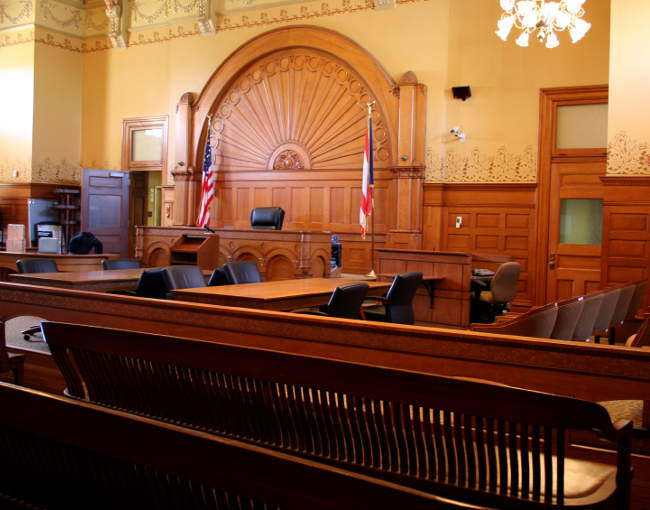On March 15, 2019, the U.S. Department of Education released much anticipated guidance (the 2019 Guidance) detailing how the agency would go about implementing the 2016 version of its complex and controversial “borrower defense” rule (the 2016 Rule). As indicated in the Department’s announcement, the 2016 Rule was scheduled to take effect on July 1, 2017, but was delayed by the current administration. Following an October 2018 decision by the U.S. District Court for the District of Columbia, the delay was set aside and the 2016 Rule took effect. This rule impacts all sectors of higher education, and the Department has labeled the related 2019 Guidance as “significant guidance” under the Office of Management and Budget’s Final Bulletin for Agency Good Guidance Practices.
On March 27, 2019, Thompson Coburn’s Higher Education Practice hosted a free 90-minute webinar examining the 2019 Guidance in detail. This webinar addressed each major component of the guidance, including implementation of the borrower defense framework, institutional reporting requirements under the revised financial responsibility rules, and the use of pre-dispute arbitration and class action waivers.
With this blog post, we highlight one of the most onerous reporting requirements under the 2016 Rule: the requirement that all institutions of higher education report all of their litigation to the Department.
What you have to report and when you have to report it
Under the 2016 Rule, the financial responsibility regulations found at 34 CFR 668.171 have been augmented to require institutions of higher education to report a wide range of events to the Department. Because the new rule was officially effective July 1, 2017, institutions must report certain events that occurred between July 1, 2017, and March 15, 2019, as well as certain events going forward. We have created a short reporting guide to help institutions quickly grasp the requirements and timeframes.
Of the categories of reportable events articulated in the financial responsibility section of the new rule, the following two concern active litigation:
- Agency-Initiated Borrower Defense Lawsuits (668.171(c)(1)(i)(B)). Institutions must report to the Department if: (a) the school is being sued in an action brought on or after July 1, 2017, by a federal or state authority for financial relief on claims related to the making of a Direct Loan for enrollment at the school or the provision of educational services; and (b) the suit has been pending for 120 days.
- Other Litigation (668.171(c)(1)(ii)). Institutions must report any litigation that is not an agency-initiated borrower defense lawsuit, if the action was brought on or after July 1, 2017, AND:
- The institution has filed a motion for summary judgment or summary disposition and that motion has been denied or the court has issued an order reserving judgment on the motion;
- The institution has not filed a motion for summary judgment or summary disposition by the deadline set for such motions by the court or by agreement of the parties; OR
- If the court did not set a deadline for filing a motion for summary judgment and the institution did not file such a motion, the court has set a pretrial conference date or trial date and the case is pending on the earlier of those two dates.
In this blog, we are focused on the latter of these two requirements, referred to as the “Other Litigation” standard. Significantly, the Other Litigation standard makes no reference to venue, the nature of the underlying claim, the amount of the claim, the party bringing the claim, or the materiality of the claim to the institution’s financial wherewithal. The rule simply states that if an institution “is being sued in an action brought on or after July 1, 2017” and that action is not an agency-initiated borrower defense lawsuit described under 668.171(c)(1)(i)(B), the litigation is a reportable event as soon as it also satisfies any one of the three summary-judgment related standards discussed above.
But here’s the catch
In the new rule, reportable events are defined at 668.171(c). Reporting timeframes for these events are set out at 668.171(h). In the case of Other Litigation, the rule at 668.171(h)(1)(i) and the 2019 Guidance, taken together, require institutions to report as follows:
- By May 14, 2019, an institution is required to report any Other Litigation that occurred after July 1, 2017, if any one of the summary judgment-related standards set out in 668.171(c)(1)(ii) has been met, and the matter was still pending as of March 15, 2019.
- Going forward, an institution is required to report any Other Litigation:
- 10 days after the institution is served with the complaint;
- 10 days after the court sets the dates for the earliest of the three summary-judgment related standards, provided that if the deadline is set by procedural rules, notice of the applicable deadline must be included with notice of the service of the complaint; AND
- 10 days after the earliest of the triggering events occurs.
So to be clear, as the rule and the guidance currently stand, any lawsuit brought by any party against the school that is not an agency-initiated borrower defense lawsuit, at a minimum, must be reported within 10 days of the institution receiving the complaint and within 10 days of the court setting a date for one of the three summary-judgment related standards. It does not matter who filed the lawsuit, the nature of the claim, or the materiality of the claim to the institution.
Some institutions may question why an institution would be required to report litigation to the Department under 668.171(h) before the litigation actually becomes a “reportable” event under 668.171(c) or, for that matter, without regard to the nature or materiality of the claim. We speculate that the drafters of the rule were taken with the notion that more data is better and that any objections to the wide scope of the rule were simply overruled. Whatever the reason, there is no question that as written, the rule requires an institution to make the first and second notices before the point at which the litigation could even become a “reportable” event under 668.171(c). For example, if an institution timely files a motion for summary judgment or summary disposition and that motion is granted, the litigation will never qualify as a reportable event under 668.171(c), but the institution will already have made at least two notices, one within 10 days of the claim, and one within 10 days of the deadline for filing summary judgment.
Why institutions should care
These new reporting obligations were introduced because the Department is looking to identify, as early as possible, events that may impact the financial responsibility of institutions. If an institution reports an event that is material to the institution’s financial wherewithal and is unable to establish that through insurance or other means it can mitigate the impact of the event, the Department could require that the institution provide some form of surety (e.g., a letter of credit) or the Department could impose various restrictions on the school’s participation in the federal financial aid programs.
This being said, for the vast majority of institutions, the vast majority of litigation that is reported will not represent a material threat to the institution’s financial stability. With this in mind, for most institutions, the primary risk associated with the reporting requirement is simply failing to report. Institutions should note that a failure to report could be consequential. Under the new rule, if an institution fails to make a required notification, 668.171(h)(2) empowers the Department to take administrative action against the institution, including initiating a proceeding to fine, limit, suspend, or terminate the institution's participation in federal financial aid programs.
It may be that the current administration does not have the infrastructure or the desire to police the timeliness of these reports. Secretary DeVos has openly scorned this rule, and the current administration is in the process of rewriting it. Nonetheless, a failure to report litigation would be fairly easy to identify in an annual audit or program review, and a future administration may not be so casual in its enforcement of the rule. It also bears mentioning that historically, the Department has not looked favorably upon institutions that completely fail to comply with reporting and disclosure requirements. A cursory survey of the fines levied for non-compliance with the Clery Act readily illustrates this point.
How and what to report
Pursuant to the 2019 Guidance, notifications should be sent via email to FSAFRN@ed.gov. Significantly, there is no standard form or reporting format for making a required notice. In fact, the Department has not offered any direction regarding what must be reported when providing notice, or how it should be presented beyond providing the email address.
With this in mind, institutions may want to refrain from providing significant details regarding the nature of the claim or the claim’s merit. On the other hand, given that the basis for the requirement is to determine whether an event has occurred that implicates the school’s financial stability, institutions may want to include some statement regarding the relationship between the amount of the claim and the school’s financial wherewithal, as well as any information concerning whether the litigation has been or may soon be resolved or the institution has insurance that will cover part or all of the debts and liabilities that might arise.
Parting thoughts and observations
As institutions work to process the Other Litigation reporting requirement, among others, we offer the following thoughts and observations:
- Institutions should keep in mind that there are additional reporting obligations that apply if an institution is sued and the allegations include a “borrower defense” style claim. In such cases, 34 CFR 685.300 obligates institutions to provide actual copies of specified judicial and arbitral records to the Department. This was discussed in detail in our recent webinar.
- It appears that public institutions also must adhere to the new financial responsibility reporting requirements. Because the manner in which public institutions establish financial responsibility differs from private non-profit and proprietary schools, there would seem to be a reasonable argument that certain of the reporting requirements should not apply. However, no such exemption appears in the rule and none has been acknowledged by the Department.
- Institutions should keep a keen eye out for updated guidance from the Department. Many open questions remain about the new reporting obligations. Based on past practice, any such guidance would likely appear in the form of an Electronic Announcement.
- It is critical that financial aid staff, financial officers, compliance officers, and other administrators with responsibility for federal financial aid compliance bring these reporting requirements to the attention of the in-house or outside counsel managing their litigation, as well as to any insurance counsel. Determining whether and when certain of the new reportable events have occurred will almost certainly require their input and cooperation.
Finally, we strongly encourage individuals to share this post internally and with others in the postsecondary community whom they believe may not be aware of these reporting requirements. Based on our recent interactions with the higher education community, we fear that many institutions may not fully appreciate their obligations under the new rule, or be aware that the first reporting deadline of May 15, 2019, is almost upon us.
Thompson Coburn’s Higher Education Practice has offered extensive coverage of the borrower defense rule in all its iterations. In November 2016, we presented four detailed 90-minute webinars on the 2016 Rule. The recordings of all four webinars are still available free and on demand on our website for those who may wish to revisit the various aspects of the regulation. Individuals looking for the text of the 2016 Rule can access the official version on the Federal Register website.
Institutions with questions regarding the borrower defense rule are welcome to contact Aaron Lacey at (314) 552-6405 or alacey@thompsoncoburn.com. Aaron is the leader of Thompson Coburn’s Higher Education practice, host of the Firm’s popular Higher Education Webinar Series, and editorial director of REGucation, the Firm’s higher education law and policy blog. In October 2017, Aaron was selected by the U.S. Department of Education to serve as one of 17 primary negotiators charged with overhauling the “borrower defense” rule. The Department designated Aaron to represent and negotiate on behalf of general counsels, attorneys, and compliance officers at postsecondary institutions nationwide.


















